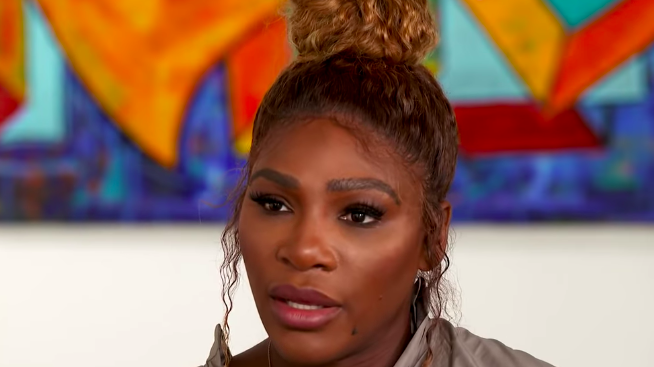Champion is a word that is readily associated with Serena Williams as a tennis star, but she is now acting as a champion for a cause outside of the sport in which she dominates: financial abuse.
Defined as a means of power used by an abuser to control the finances and prevent their partner from leaving a relationship, financial abuse often occurs in domestic violence cases, reports the National Network to End Domestic Violence.
Williams spoke about financial abuse awareness at the Forbes Under 30 Summit last week in Detroit with Daniela Pierre-Bravo, a contributor for Know Your Value.
The Compton native admitted to CBS News, in an interview published on Thursday, that she didn’t initially know what financial abuse entailed. She was shocked about its prevalence and said she has seen its damaging effects because of a friend.
October also happens to be Domestic Violence Awareness Month.
“A really close friend of mine was going through a situation that wasn't really healthy for her, wasn't healthy for her friends, or her family — and it was difficult to tell her,” she said. “And then I realized, look, oh my goodness, she's — all the signs that I was learning about with financial abuse, she was involved in.”
She explained why she was drawn to advocate for awareness of domestic abuse.
"I feel like a responsibility to make people know more about things like financial abuse. And how to avoid it like I want to teach my daughter everything about it," Williams said. "And if I have more kids and I have a boy, I want to teach him about it so he is not a part of the problem and only adds to the solutions."
In 2017, the Wimbledon star became a national ambassador for Allstate Foundation Purple Purse, which helps educate people about domestic abuse and provides survivors with financial empowerment resources. In late August, she starred in a public service announcement from the organization, which was titled "Signs."
“Know the signs,” she told Pierre-Bravo during the Forbes Summit. “[If] you can’t use your credit card, someone is telling you how to spend your money or what to do, or you’re not being allowed to buy something simple, or [having to] show receipts from grocery store runs.”
She also offered other tips and explained that this sort of abuse makes the victim financially dependent on the abuser.
“It’s not so easy to walk away…Your credit could be ruined,” said Williams. “…You blame yourself, you might have kids. It’s a difficult situation.”
On top of her efforts to draw attention to the crisis, Williams also regularly advocates for female business owners, young entrepreneurs and people of color.

